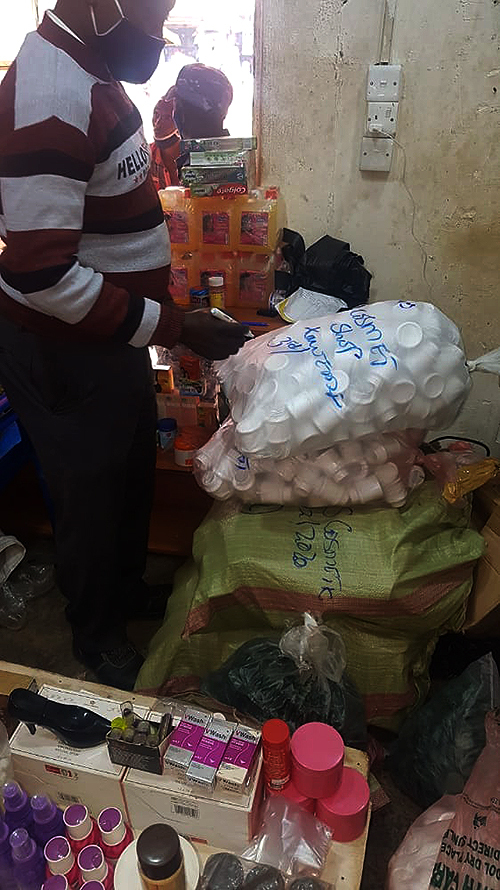UNBS warns public against uncertified goods
John Caesar Nasaba, a senior surveillance officer for UNBS said during the Covid-19 pandemic, a number of outlawed beauty products have found their way onto the market.
The Uganda National Bureau of Standards has warned the public against the use of uncertified beauty products because most of them contain outlawed carcinogenic ingredients.
This comes following the seizure of approximately 85,200mls of Clair cream with hydroquinone, and 18,000gms of Diproson cream, both being used as ingredients in the informal manufacture of pimple cream, Zero Pimples.
According to UNBS, a market surveillance team discovered that the new, uncertified product contained the outlawed ingredients, and embarked on surveillance to locate its manufacturing premises.
John Caesar Nasaba, a senior surveillance officer for UNBS said during the Covid-19 pandemic, a number of outlawed beauty products have found their way onto the market, taking advantage of the reduced surveillance on the border entry and exit points.

"Our plea to the public is that they should be the first line of their own protection, by avoiding any uncertified products. We need to work together to protect all of us. The perpetrators are simply taking advantage of the reduced surveillance on the crossing points, to bring in concoctions that they use to harm innocent Ugandans," he said.
According to Nasaba, the Zero Pimple cream, for instance, was being concocted from Nansana Ganda in a private residence and sold across the country to unsuspecting consumers. Already, one of the co-directors, of the Zero Pimples manufacturers was apprehended by police, to help in investigations, he said.
"That said, the fight against substandard products has so far yielded good results because now we have fewer inferior quality products on the market than before. We shall continue to hunt these products and destroy them, in an attempt to protect and safeguard the public," she said.
A substandard product is one that does not meet the general and technical specifications required by the standards and as such, is considered to be inferior or of poor quality.
He said UNBS has reviewed, and will therefore enforce the Imports Inspection and Clearance Regulation 2018, which requires goods covered by compulsory standards to be inspected in their country of origin before they are allowed on the market.
He said the regulator has also reviewed the Distinctive Mark Regulation 2018, which requires all locally manufactured goods covered by compulsory standards must be certified and issued with UNBS Distinctive Mark before they are allowed on the market.
According to Fred Muwema, the Anti-Counterfeit Network director of legal and corporate affairs, approximately 70% of fake products in Africa are being dumped in Uganda, due to insufficient testing equipment, and careless brand owners.
Muwema says counterfeits and substandard products are eroding the potential for optimum revenue collection, making it difficult for governments to raise adequate financing to reduce poverty.
He said counterfeits and substandard products are also affecting industrial growth, because they expose genuine businesses to unfair competition, and limit investment.
According to the Kampala City Traders' Association (KACITA) chairman, Everest kayondo, the problem is persisting due to poor enforcement of laws and negligible monitoring of border entry points by mandated agencies such as UNBS.
"We cannot prevent the entry of such dangerous items on the market while mandated agencies only have a 20% presence at the border entry points," he said.
In January 2018, government through the ministry of trade withdrew the Anti-Counterfeiting goods bill 2015, from the floor of parliament, following opposition from Civil Society Organisations due to its definition of counterfeit.
The organisations argued that provisions in the bill were likely to restrict access to generic medicines, which form the bulk of medicines used in Uganda.
Previously in 2013, the government had approved the bill and passed it to parliament for discussion and consequent passing, where it has remained since.
